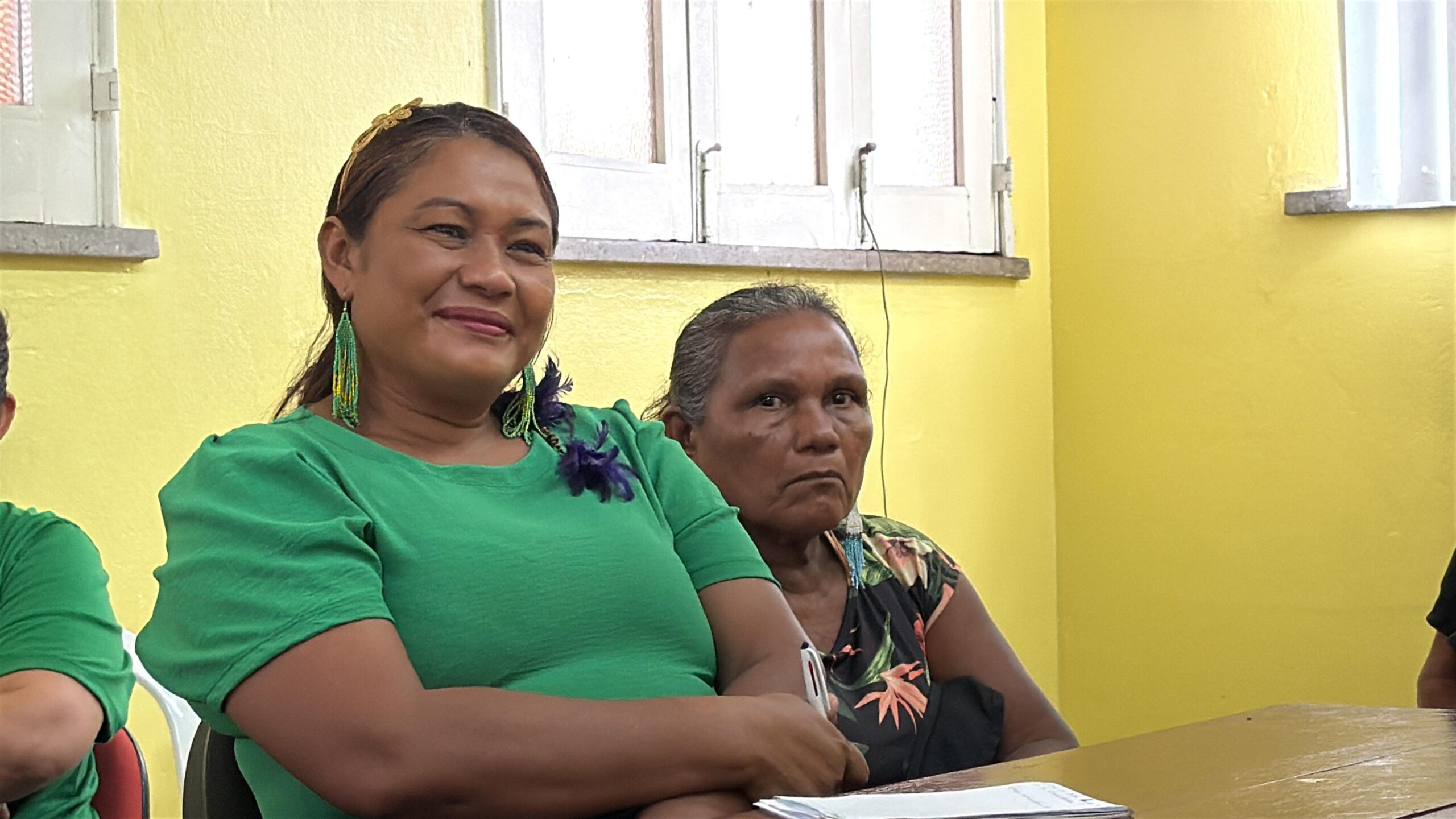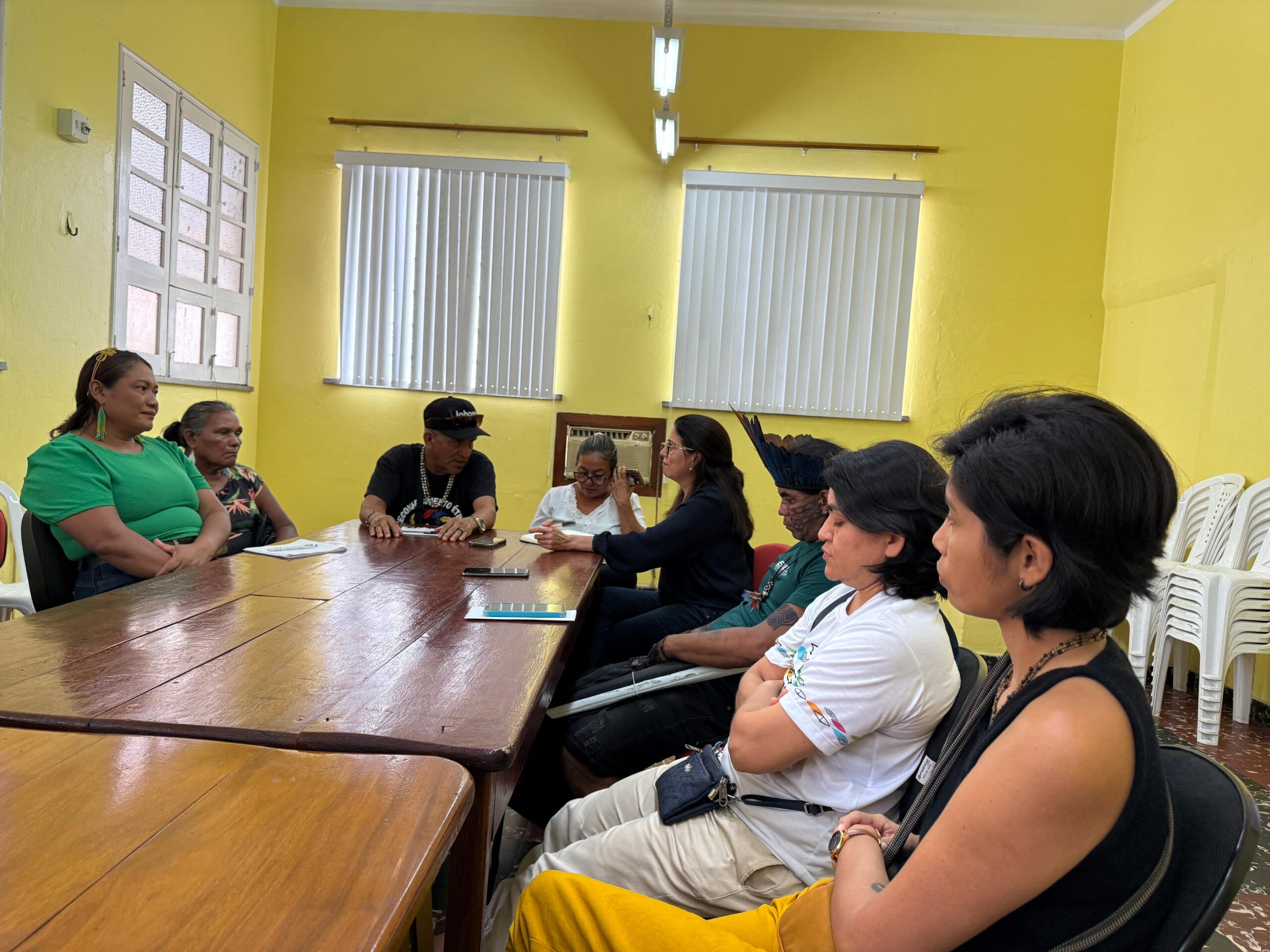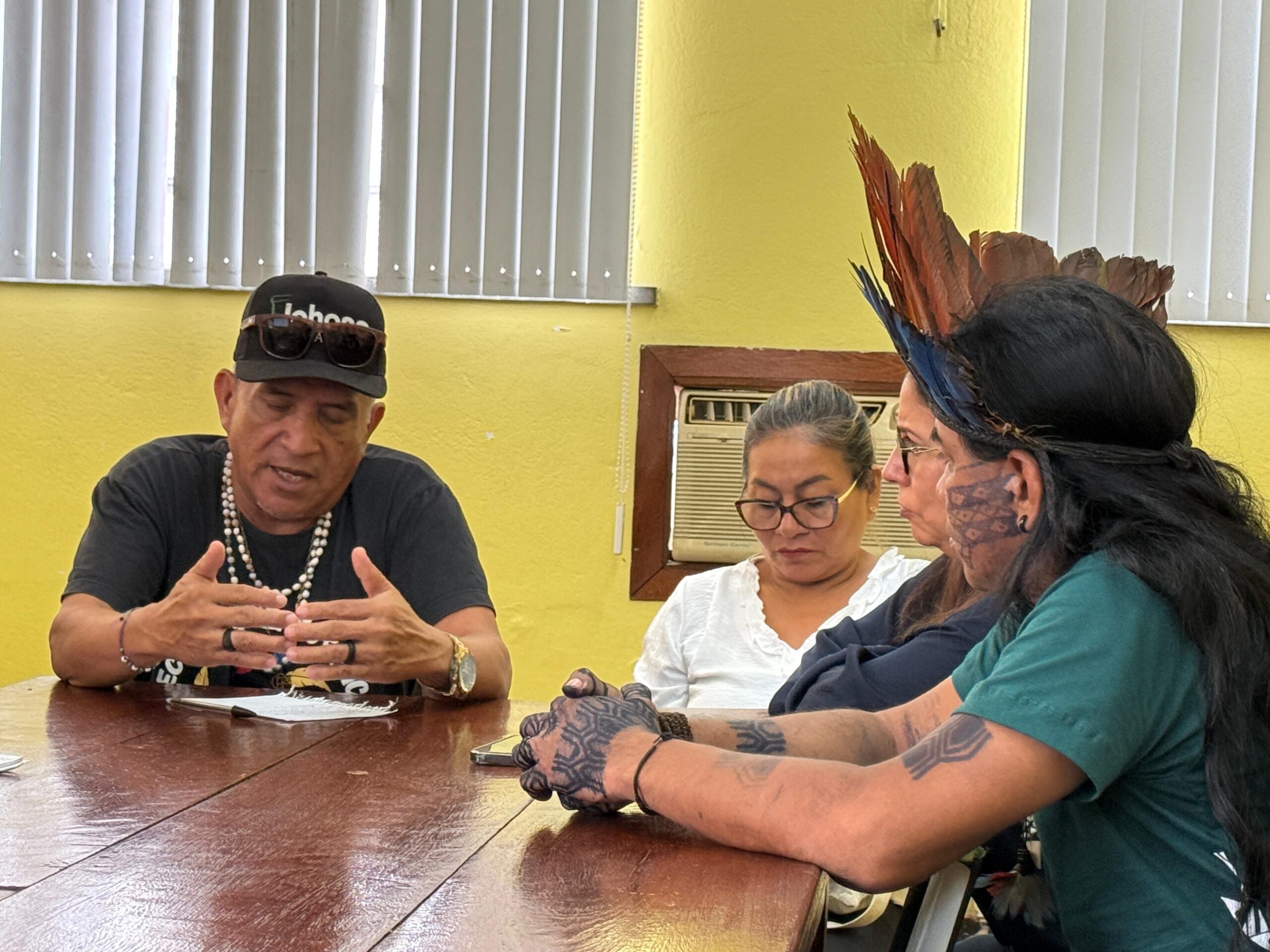As part of the synodal listening process being carried out by the Ecclesial Conference of the Amazon (CEAMA) to discern its apostolic priorities, a meeting was held in Manaus with urban indigenous leaders and leaders from communities in the Amazon region, organized by the Indigenous Pastoral Care of the Archdiocese of Manaus.
The event, which took place in an atmosphere of respect, openness, and fraternal dialogue, was attended by Monsignor Zenildo Lima, vice president of CEAMA and auxiliary bishop of Manaus; Alicia Covaleda, consultant to the organization; and Fernando Rueda, from CEAMA communications team.
Listening to walk with the Amazonian face
The meeting was part of Pope Francis’ call for a Church that listens, learns, and walks with the peoples, recognizing the presence of the Spirit in their voices.
From this perspective, the dialogue revolved around three main themes: Amazonian identity, the challenges of indigenous inclusion in cities, and the Church’s pastoral action in the face of discrimination, poverty, and loss of territory.
Alicia Covaleda, who accompanied the process, posed questions that sparked a deep conversation about the current situation of indigenous peoples in Manaus:
“What are the main challenges facing indigenous communities in Amazonian metropolises today? How can the Church accompany and transform that reality?”
The answers painted a complex and painful, but also hopeful, picture of the lives of indigenous communities who migrate to cities in search of more dignified conditions.
Challenges of inclusion and dignity
Indigenous leaders shared experiences marked by discrimination, racism, and structural exclusion they face in areas such as education, health, and housing.
One community representative recounted the difficulties of enrolling his children in public schools, where their indigenous identity is denied or questioned, and denounced unequal treatment in health services.
Another participant recalled that, in Amazonian metropolises, many indigenous peoples live in precarious conditions, without access to basic services, and urged the Church to accompany the processes of searching for land and decent housing.
“Indigenous peoples have no borders. Borders were imposed on us by the colonizers,” said a leader of the Warao people, recalling that indigenous identity transcends political and national boundaries.
The meeting also provided an opportunity to hear the testimonies of indigenous migrants from Venezuela, who denounced the xenophobia and racism they face in their daily lives, but also thanked the Church for the support they have received, especially the opportunities to participate in fairs and events where they can sell their crafts and share their culture.
The Church as an ally on the path to inclusion
Throughout the dialogue, the role of the Church as a mediator and companion to indigenous peoples was highlighted, not only in their defense of their territory, but also in their search for recognition, education, and social justice.
The participants emphasized that the Amazonian Church must continue to be a space for intercultural encounter, promoting the dignity and active participation of peoples in pastoral and social life.
At the close of the meeting, Monsignor Zenildo Lima said:
“Listening to indigenous peoples is not an act of courtesy, but an evangelical requirement. Their voices help us to recognize the Amazonian face of the Church and to renew our mission based on fraternity and respect.”
Identity, territory, and hope
The participating leaders agreed that the main challenge remains keeping indigenous identity alive amid urbanization and the loss of ties to ancestral territory.
They warned that environmental destruction—the result of mining, deforestation, and urban megaprojects—impacts not only nature but also the spiritual and cultural life of their peoples.
“When the forest is destroyed or the river is polluted, it is not only nature that is lost; a part of our soul is lost,” said one of the participants.
The meeting ended with a joint call for awareness and collective action, inviting the entire Amazonian Church to recognize the richness of indigenous cultures, fight against discrimination, and promote a more just and intercultural society.
Another step on the Amazonian synodal journey
CEAMA reaffirms its commitment to continue listening to, accompanying, and learning from indigenous communities, especially those living in urban and border contexts, where exclusion is most visible.
These spaces for dialogue are concrete signs of a synodal Church, with an Amazonian face and a fraternal heart, which seeks to walk with the peoples in defense of life, territory, and our Common Home.



